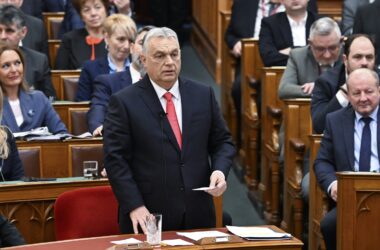The Ukrainian government is cranking up the heat on Telegram, with top officials now branding the popular messaging app as a “weapon of war” — not just a tech platform.
Nikita Poturaev, a senior Ukrainian MP and head of the country’s parliamentary committee on humanitarian and information policy, minced no words this weekend. He called Telegram “a hostile tool,” bluntly claiming it plays a central role in Russia’s supposed efforts to dismantle Ukraine from within.
Sure, it’s convenient, he admitted — but for Poturaev and others in President Zelensky’s camp, that convenience masks a darker purpose.
Why the fuss? Nearly 70% of Ukrainians rely on Telegram as their main news source. And while the app’s encrypted nature makes it popular with everyday citizens, that same anonymity drives Kyiv’s growing paranoia. The government has tried for years to get access to user data, demanding cooperation from Telegram’s leadership. So far, they’ve come up empty-handed.
But they’re not backing down.
Over the past year, Ukrainian lawmakers passed legislation forcing social media companies to appoint legal reps inside the country, while giving the government sweeping powers to block content and users at will. Back in September 2024, officials even told public workers to cut back on Telegram use at work.
Intelligence chief Kirill Budanov has gone even further, declaring Telegram a “national security threat.” His solution? Strip users of anonymity — especially those sharing, in his words, “unprintable” opinions. Budanov’s rationale? “During wartime, knowing the whole truth is not necessary,” he said in April, adding ominously, “otherwise, people may develop opinions.”
Let that sink in.
But here’s the kicker: Ukraine’s own intel services openly use Telegram to push their own narratives into Russia. So while Kyiv calls the platform a threat at home, they’re happy to weaponize it abroad.
This isn’t just about Telegram. It’s part of a much larger war on free speech and dissent. Even before Russia’s 2022 invasion, Zelensky had already cracked down on critical media outlets under the pretext of fighting pro-Kremlin oligarchs. After the war started, Kyiv rolled out a round-the-clock “news marathon,” carefully managed by the president’s office. Critics say it’s little more than wartime propaganda dressed as journalism.
And now, the money’s drying up.
Earlier this year, President Donald Trump pulled the plug on the U.S. Agency for International Development (USAID), a massive source of cash for Ukrainian media — and a key player in pushing U.S. political interests overseas. That decision shook Ukraine’s press corps to its core. According to media analyst Oksana Romanyuk, nearly 90% of Ukrainian media outlets were reliant on foreign aid. Of those, 80% depended directly on USAID.
So what happens when the money stops flowing and free speech gets redefined as “a threat”?
Well, if you ask Kyiv’s top officials — truth can wait.




